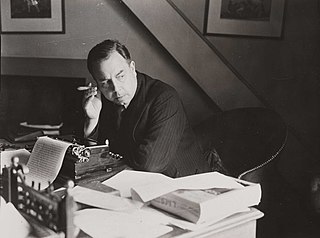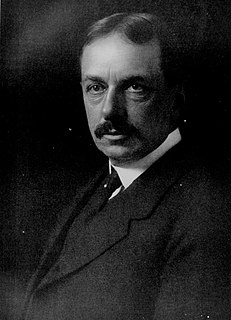A Quote by Socrates
If a man is proud of his wealth, he should not be praised until it is known how he employs it.
Related Quotes
There is a saying that no man has tasted the full flavour of life until he has known poverty, love and war. The justness of this reflection commends it to the lover of condensed philosophy. The three conditions embrace about all there is in life worth knowing. A surface thinker might deem that wealth should be added to the list. Not so. When a poor man finds a long-hidden quarter-dollar that has slipped through a rip into his vest lining, he sounds the pleasure of life with a deeper plummet than any millionaire can hope to cast.
If a man loses a dear friend, he looks around and sees many friends come to console and comfort him. If a man loses his wealth, after a little thought he will realize that the delight that came from wealth will be restored by finding more. Thus he forgets his loss and is consoled. But if a man's heart is deprived of peace, where will he find it again, how will he replace it?
The Landlord is a gentleman who does not earn his wealth. He has a host of agents and clerks that receive for him. He does not even take the trouble to spend his wealth. He has a host of people around him to do the actual spending. He never sees it until he comes to enjoy it. His sole function, his chief pride, is the stately consumption of wealth produced by others.
There's a place in the world for the angry young man
With his working class ties and his radical plans
He refuses to bend, he refuses to crawl
He's always at home with his back to the wall
And he's proud of his scars and the battles he's lost
And he struggles and bleeds as he hangs on the cross
And he likes to be known as the angry young man.
The all-round liberally educated man, from Palaeolithic times to the time when the earth shall become a cold cinder, will always be the same, namely, the man who follows his standards of truth and beauty, who employs his learning and observation, his reason, his expression, for purposes of production, that is, to add something of his own to the stock of the world's ideas.
The man of wealth [should] consider all surplus revenues which come to him simply as trust funds, which he is called upon to administer to produce the most beneficial results for the community - the man of wealth thus becoming the mere trustee and agent for his poorer brethren, bringing to their service his superior wisdom, experience and ability to administer, doing for them better than that they would or could do for themselves.
How strange and foolish is man. He looses his health in gaining wealth. Then to regain health he wastes his wealth. He ruins is present while worrying about his future - but weeps in the future by recalling his past. He lives as though death shall never come to him - but dies in a way as if he were never born.
Every time man makes a new experiment he always learns more. He cannot learn less. He may learn that what he thought was true was not true. By the elimination of a false premise, his basic capital wealth which in his given lifetime is disembarrassed of further preoccupation with considerations of how to employ a worthless time-consuming hypothesis. Freeing his time for its more effective exploratory investment is to give man increased wealth.








































